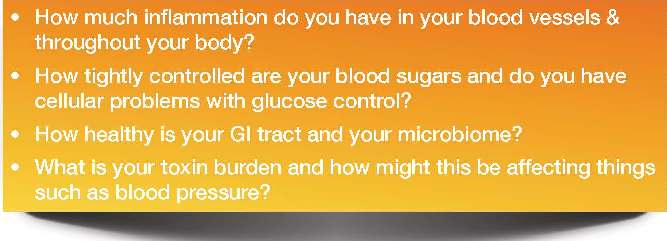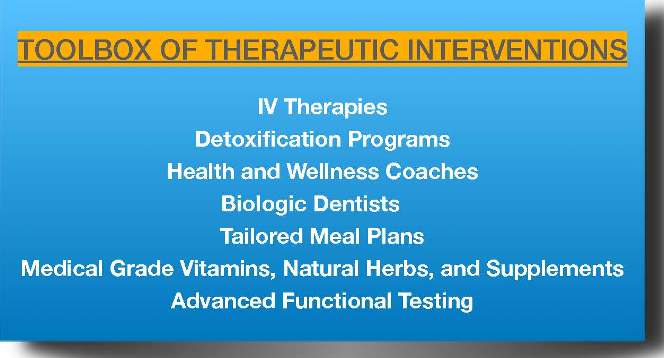
Do you have problems with your performance in the boardroom or the bedroom?
Do you have irregular menstrual cycles or infertility concerns?
Are your hands and feet often cold?
Pay attention, as these could be signs of early cardiovascular disease (CVD).
Many people think of CVD in those who have had a heart attack, stroke, high blood pressure or cholesterol problems. And while these are major diseases of the cardiovascular system, it is important to broaden your understanding as YOU may be at risk and need to intervene early.
For example, if you have been diagnosed with erectile dysfunction you have vascular disease in your penis. This is actually an early sign that you likely have blood vessel problems in other organs throughout your body. Memory problems could also be a sign that you have brain vascular disease. Alzheimers is, in fact, considered type 3 diabetes.
For women, irregular menstrual cycles may be the result of a condition called polycystic ovarian syndrome (PCOS) which can contribute to infertility. The pathophysiology of PCOS is insulin resistance which is a major risk factor for CVD.
Your body is brilliant at trying to give you clues that something is going on with your vascular system. It is up to you to pay attention to these early signs to ultimately prevent severe disease from happening.
PREVENTION
The good news is that most of CVD is not genetically determined. So, if your mother or father have high cholesterol and diabetes, you are not doomed to this fate. Whether YOU develop CVD is mostly driven by how you live your life.
- How many colorful vegetables did you eat yesterday?
- Did your meal consist of some healthy fats?
- Any recent sun exposure and outdoor activities?
- Are you pooping every day and does it sink to the bottom of the toilet?
- When was the last time you laughed until you cried?
- How many hours of uninterrupted sleep are you getting on a regular basis?
- What vitamins is your body lacking and why?
TESTING & TREATMENT of HEART DISEASE with FUNCTIONAL MEDICINE
Addressing Cardiovascular Disease goes far beyond taking a pill for your hypertension and a statin for your cholesterol. Yes, you may need to be on these temporarily as you address the underlying causes(s) of your disease. But if 50% of patients who are having heart attacks have normal cholesterol, it would seem that these pills aren’t enough.
The first thing that you want to do is know your “true health” status. Unfortunately, many “normal” labs are not considered at optimal levels and you may leave your doctor’s office thinking you are healthier then you really are. The reason for this is that you didn’t get comprehensive laboratory testing thorough enough to make this claim.
Your true health answers more challenging questions such as…

Taking a deeper dive means doing advanced testing -beyond your basic panels.
|
Condition Being Evaluated |
Conventional Medicine |
Functional Medicine |
|
Hyperlipidemia |
Cholesterol, HDL, LDL, TG |
Cholesterol, HDL, LDL, TG, Small LDL, LDL particle, Apo (B), CRP, ESR, Lp(a), homocysteine, Mg |
|
Blood glucose status |
Glucose (serum) |
Glucose (serum), HbAic, fasting insulin, C-peptide (if indicated) |
|
Hypertension |
EKG |
EKG, Stress ECHO, coronary calcium score |
This alphabet soup of testing gives functional medicine doctors a more accurate picture of your health, and how your biological systems are functioning, in order to create a personalized treatment plan tailored to your physiology.
Testing goes well beyond these labs however. There are many factors that contribute to increasing your risk for CVD. For example, high blood pressure may be related to certain vitamin deficiencies, as well as toxins - like heavy metals found in your dental amalgams. Replacing these vitamins and supporting your body’s own detoxification pathways may be all that is needed to lower your readings and avoid the need to start medications.
Most chronic diseases are due to underlying inflammation that can be assessed in advanced lab testing. But what exactly is inflammation and where could it be coming from?
INFLAMMATION
Poor DIetary Choices
Stress and High Cortisol
Lack of Quality Sleep
Gut and other Chronic Infections
Autoimmune Diseases
Vitamin and Nutritional Deficiencies
Hormonal Imbalances
Toxins
Most of these factors can be managed with dietary and lifestyle interventions to minimize the need for pharmaceutical interventions. The next step in treatment is to determine which factors are (1) contributing to your established CVD or (2) increasing your chances of developing disease in the future.
HOW IS A FUNCTIONAL MEDICINE APPROACH DIFFERENT?
Root Cause. We seek to determine the root cause(s) of your disease and not just treat your symptoms with medications. Many of the interventions can be addressed with diet and lifestyle. This may include the use of anti inflammatory meal plans or a temporary elimination diet to remove known triggers. You may benefit from time restricted / intermittent fasting eating programs offered by our wellness coaches. Stress reduction plans and improved sleep hygiene interventions are also necessary in order to lower your inflammation.
De-prescribe. Our goal is to lower and eventually eliminate your need for pharmaceuticals. They can, however, serve as a temporary bridge while we work on addressing the underlying pathology of your disease. Some patients may unfortunately need to remain on medications; in which case, we will work with your cardiologist and primary care doctor with the goal of keeping you on the lowest dose possible. As an example, patients with severe coronary vascular disease may require long term statin therapy. Unfortunately, due to the possible side effects, these patients would need to be monitored for specific vitamin deficiencies, cognitive decline, joint and muscle pains and diabetes.
Managing the many drug related side effects is another important part of your heath treatment plan. In conventional medicine more and more drugs are given to deal with new symptoms that actually resulted from the original medication prescribed.
Whole Patient Medicine. Your cardiovascular system is not separate from your brain or GI tract. It is critical that we think about your health as a comprehensive, integrated system. Although the focus is on cardiovascular disease, your work up might reveal a GI infection or autoimmune disease that would need to be addressed in order the lower your body’s inflammation and CVD risk.

CONCLUSION
Cardiovascular disease is not an old person’s disease. All adults need to pay attention to early signs and symptoms and talk with their doctor about what these could mean. In addition, working with a Functional Medicine Practitioner gives you the opportunity to undergo a comprehensive evaluation of your current health status. And although CVD results from complex biological processes, much of the treatment revolves around natural, dietary and lifestyle driven interventions best provided by an integrated multi-disciplinary team in order to optimize health, wellness, and vitality.
 Dr. Denia Tapscott, MD is board certified in internal medicine and provides personalized treatment with a functional medicine approach to get to the root cause of issues and begin the journey towards wellness. Her areas of interest include: Functional Medicine, Adult Holistic Primary Care, Infertility, Obesity Medicine and Weight Loss, Cardiovascular Disease, Diabetes Prevention & Metabolic Syndrome, Chronic Disease Management, Pre and Post Bariatric Surgery Care and Diet and Lifestyle care.
Dr. Denia Tapscott, MD is board certified in internal medicine and provides personalized treatment with a functional medicine approach to get to the root cause of issues and begin the journey towards wellness. Her areas of interest include: Functional Medicine, Adult Holistic Primary Care, Infertility, Obesity Medicine and Weight Loss, Cardiovascular Disease, Diabetes Prevention & Metabolic Syndrome, Chronic Disease Management, Pre and Post Bariatric Surgery Care and Diet and Lifestyle care.
More from this author
4 Lab Tests to Assess Your TRUE Cardiovascular Risk
Improve Your Immune Health to Fight Virus
Why is it So Hard to Lose Weight?
.png?width=305&height=132&name=NIHAlogoBLUE_3_transparent%20(2).png)

